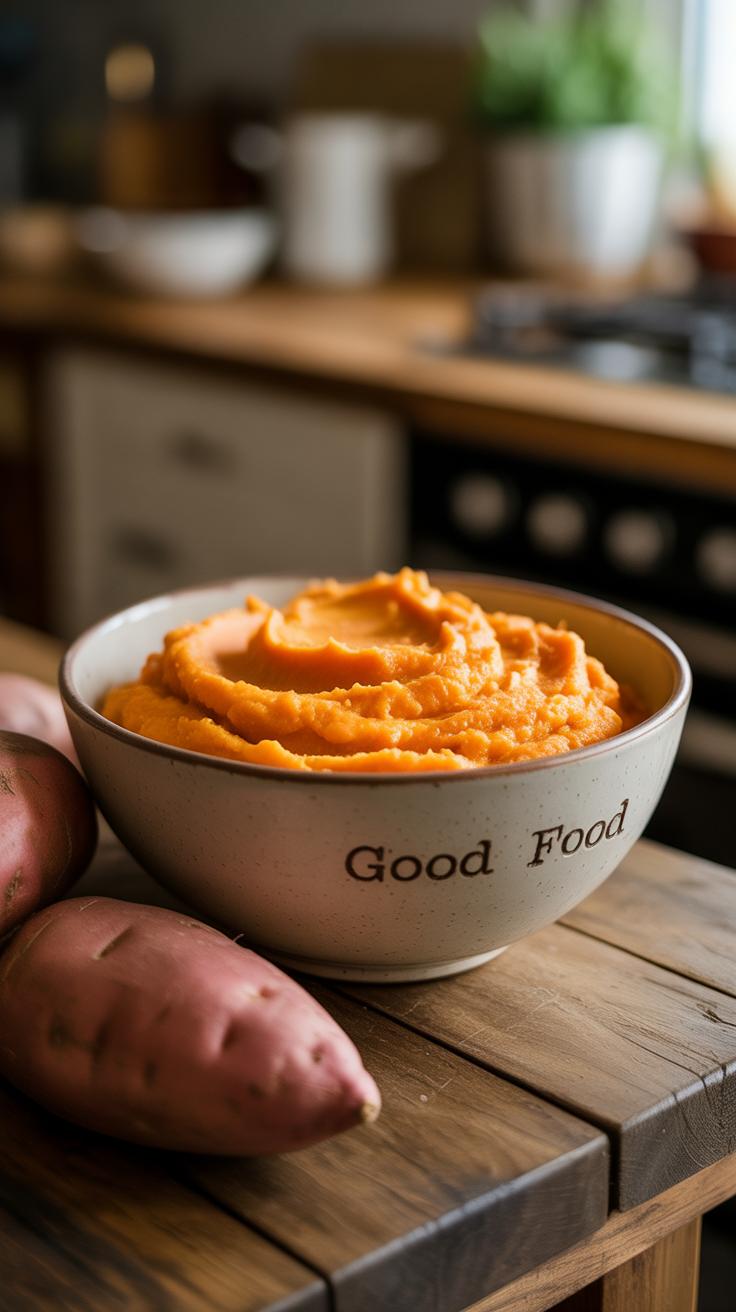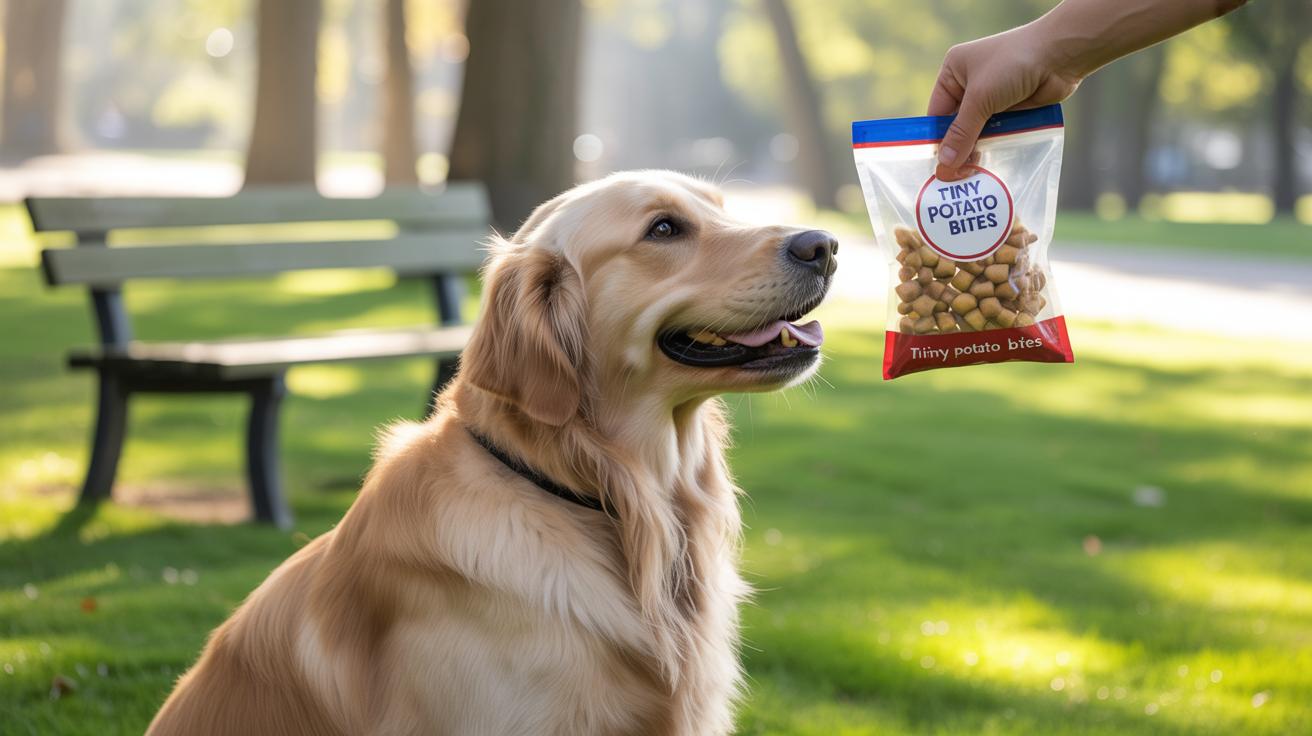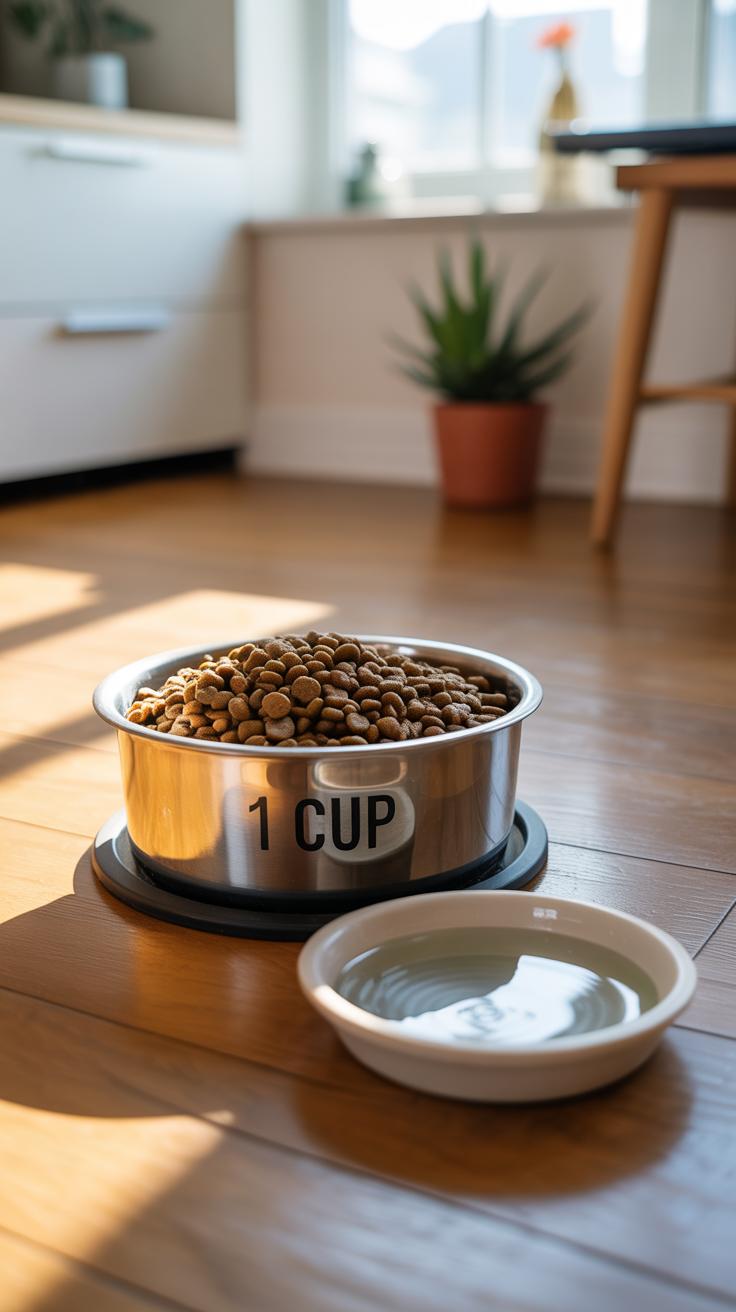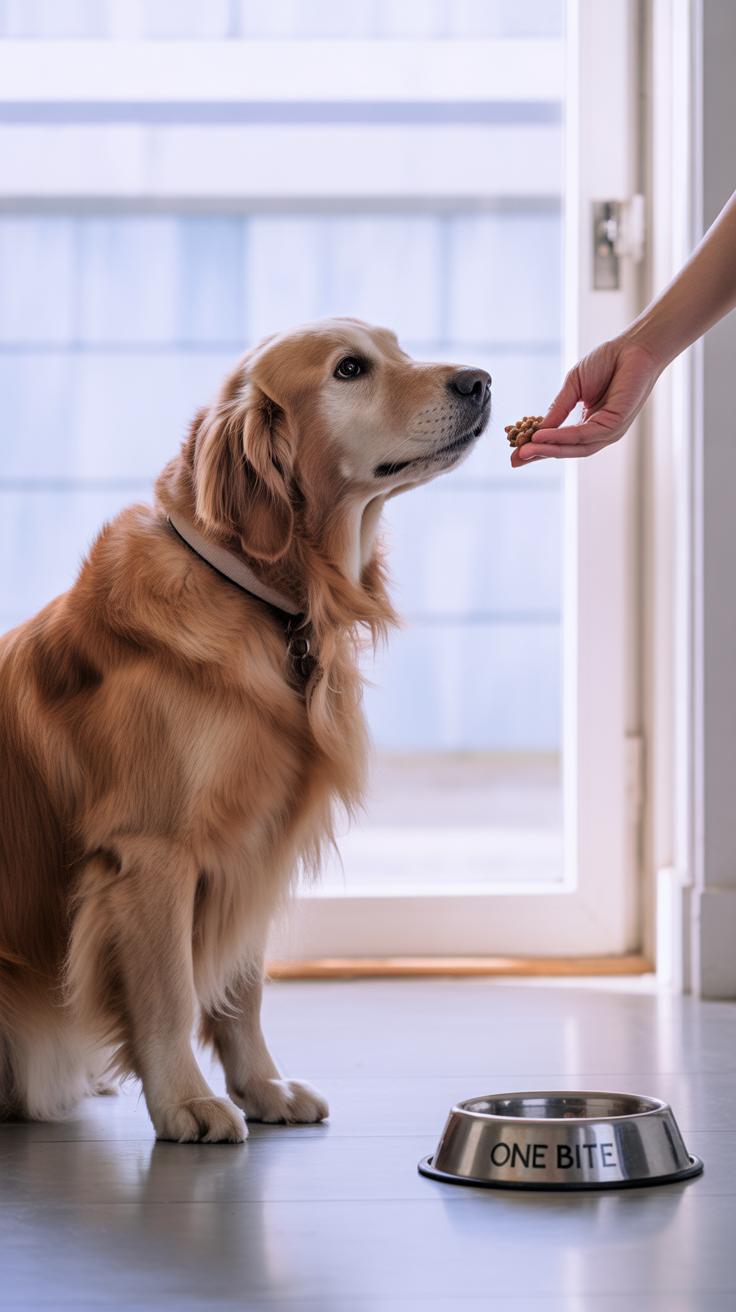Introduction
Sweet potato breakfast bites offer a simple and nutritious way to energize your dog at the start of the day. These bites combine sweet potatoes, which provide essential carbohydrates and fiber, with other dog-friendly ingredients to create a healthy and tasty breakfast option for your furry friend. Sweet potatoes are safe and beneficial for dogs, helping to support their digestion and provide lasting energy.
In this article, you’ll learn how sweet potatoes can benefit your dog’s health, how to prepare tasty breakfast bites, and tips to introduce this new food into your dog’s diet safely. We’ll explore practical recipes and nutritional facts that make sweet potato breakfast bites a great choice for your pet’s morning meal.
Sweet Potato Healthy Properties That Benefit Dogs
Sweet potatoes pack quite a nutritional punch for dogs, making them a practical choice for breakfast treats. They’re a solid source of complex carbohydrates that release energy slowly. This means your dog can get a steady supply of fuel through the morning without those sharp spikes or crashes you sometimes see with simpler carbs. It’s that slow-burning energy that really matters if your dog tends to be active early on.
They’re also loaded with vitamins and mineral blends that support overall health. But beyond that energy boost, sweet potatoes bring fiber to the table, which plays a quiet, yet crucial role. This fiber isn’t just filler—it’s a key player in keeping your pup’s digestion balanced. Many dog owners don’t realize how often minor digestive hiccups can arise. Giving your dog a bit of fiber from sweet potatoes can keep things moving smoothly without adding too much bulk.
Now, of course, sweet potatoes aren’t a cure-all, but they sure complement a balanced diet well. I recall one dog owner who noticed a small but steady improvement in her dog’s digestion once she started adding sweet potato breakfast bites. So, while it’s one ingredient among many, it’s certainly one worth thinking about.
Vitamins and Minerals in Sweet Potatoes for Dogs
Sweet potatoes bring a mix of essential vitamins and minerals that do some interesting things for dogs. Vitamin A stands out the most. It supports eye health and immune defense, which means your dog can be better prepared for whatever the day throws at them—maybe even those early morning walks. Then there’s vitamin C, though dogs produce some naturally, getting a bit from food can help with cell repair and protection.
Sweet potatoes also provide manganese, an overlooked mineral that can assist in bone development and metabolism. Not every dog food highlights this, but it plays a quiet role in keeping your dog feeling fit. There’s also potassium, crucial for muscle function. You might not see changes overnight, but these minerals are part of the foundation for long-term health.
It’s maybe odd to point this out, but I often find that dogs that enjoy natural, whole foods tend to show small yet noticeable improvements in coat shine and playfulness. It’s not conclusive, but it made me look more into sweet potatoes as a regular part of meals and snacks.
Sweet Potato Fiber and Its Role in Dog Digestion
Fiber in sweet potatoes can make a tangible difference to a dog’s digestion. It helps regulate the digestive tract by adding bulk to stool, which can either firm it up or help with movement through the gut depending on what’s needed. This kind of balancing act is something not every food does well, but sweet potatoes do it quietly and efficiently.
Your dog’s digestion isn’t always perfect, and sometimes mild constipation or loose stools pop up. Fiber contributes to steadier bowel habits and may even enhance nutrient absorption by supporting a healthy gut lining. A well-functioning digestive system also means your dog is more likely to get the full benefit from the other nutrients in their breakfast.
That said, you don’t want to overload on fiber—it can cause discomfort. But a measured portion of sweet potato, especially mixed with other foods, can nudge digestion in the right direction. You might wonder, should I just give my dog pure fiber? Well, it’s more about balance, and sweet potatoes offer a pretty well-rounded way to do this.
Understanding Your Dogs Breakfast Needs
Breakfast is often called the most important meal of the day for us humans, but what about dogs? They have their own unique nutritional needs that a morning meal should address. Dogs wake up after hours without food, so giving them a balanced breakfast helps replenish their energy stores and supports brain function early in the day.
Think about your dog’s daily routine. If they’re fairly sedentary, their breakfast might need to be lighter. But for dogs that are more active, or perhaps working dogs, breakfast needs to pack a bit more punch. This is why balancing nutrients early matters—not just filling their bowls.
What should the balance look like? It generally involves:
- Carbohydrates for quick and steady energy
- Proteins for muscle repair and sustained strength
- Essential vitamins and minerals to keep their systems running smoothly
Skipping the right balance may leave your dog sluggish or overly hungry later, which can sometimes lead to behavioral issues. I’ve noticed that my own dog becomes restless when his breakfast lacks a good protein source. Ever observed something similar?
Energy Requirements for Active Dogs
Active dogs, those that run, play, or work hard, burn a lot of calories in the morning. Feeding them energy-rich foods early is key to sustaining stamina. Here’s where sweet potatoes come in—they provide a slow-digesting carbohydrate that helps keep energy levels stable over time. This makes sweet potatoes an excellent fuel source for your dog’s morning ramp-up.
Unlike simple sugars that spike energy briefly then dip, the complex carbs in sweet potatoes release glucose gradually. So, your dog won’t experience rapid energy crashes or sudden hunger pangs. You might notice your dog stays enthusiastic on walks or training sessions when fed such a breakfast.
That said, not every dog processes carbs the same way. Some might need more or less depending on metabolism or health. It’s a bit of trial and error to see how your dog feels after a sweet potato-based meal.
Balancing Protein and Carbohydrates for Breakfast
Protein and carbs have distinct roles in your dog’s morning meal. Protein repairs muscles and tissues—it’s like the building blocks your dog needs after rest. Carbs, on the other hand, are the fuel that powers those muscles.
A breakfast heavy on just carbs might give energy but falls short on maintenance and recovery. Too much protein, however, without enough carbs could make digestion tougher or lead to an energy slump.
It’s about finding a workable balance: enough protein to support muscle health, paired with carbs to sustain energy. For example, combining sweet potato with a lean protein source—like chicken or eggs—can create a well-rounded breakfast bite your dog will enjoy and benefit from.
Have you tried mixing proteins and carbs for your dog’s breakfast? It can take some experimenting. Some dogs prefer more protein; others, a carb-forward meal. Observing your dog’s energy and digestion after different breakfasts can guide you toward the right combo.
Choosing the Right Sweet Potatoes for Your Dog
Types of Sweet Potatoes Suitable for Dogs
Not all sweet potatoes behave the same when it comes to feeding your dog. Generally, the orange-fleshed varieties work well—they tend to be sweeter and easier to digest. You might also find purple sweet potatoes; some owners prefer those for variety, but they can sometimes cause mild stomach upset in sensitive pups. White-fleshed types are usually less sweet and a bit starchier. While they’re not harmful, they may not be as appealing to your dog’s palate.
At the same time, avoid any sweet potatoes that look bruised, soft in spots, or have greenish patches. These could indicate spoilage or exposure to toxins. Also, skip any varieties that have been heavily treated with chemicals or preservatives. You want the purest, freshest tuber—not just for taste but also for safety.
How to Store Sweet Potatoes Safely
Keeping your sweet potatoes in good shape before cooking means storing them properly. They like a cool, dry, and dark environment—think of a pantry or cellar rather than the fridge. Refrigeration can alter their texture, making them tough or flavorless when cooked.
If you buy sweet potatoes in bulk, check them daily. Use or cook the softer ones first—those are usually ripening faster or starting to spoil. For longer storage, wrapping them loosely in a paper towel and placing them in a perforated plastic bag might help maintain freshness a bit better.
Have you noticed how some sweet potatoes just seem to keep going while others quickly lose their firmness? It depends a lot on where and how they were grown, so sometimes you’ll get lucky, sometimes not. It’s just part of the process, I guess.
Prepping Sweet Potato Breakfast Bites Safely
When preparing sweet potato breakfast bites for your dog, start with thorough washing. Sweet potatoes often carry dirt and residues on their skin, so a good scrub under running water helps remove any lingering impurities. I find using a brush works better than just rinsing, though it might feel a bit tedious. Peeling is optional but can reduce fiber content, which some dogs handle better.
Cooking method matters. Baking and boiling both keep the sweet potatoes soft enough for easy digestion, but baking tends to preserve more nutrients, or at least that’s what I’ve read. Boiling, while simple, might cause some loss of water-soluble vitamins, so if nutrient retention is key for you, baking could be the safer choice.
You’ll want to avoid adding any seasonings, especially salt, sugar, garlic, onion, or spices. They can be harmful and might upset your dog’s stomach. Even ingredients that seem harmless, like butter or oils, should generally be left out unless recommended by your vet. Just plain, cooked sweet potatoes are best.
Safe preparation means keeping it simple. Sweet potatoes have great natural flavor and energy-boosting benefits for dogs without extra additives. Have you ever noticed your dog turning their nose up at something overly flavored? It seems they prefer things plain and straightforward, at least when it comes to treats.
Simple Recipes for Sweet Potato Breakfast Bites
Making sweet potato breakfast bites for your dog is easier than you might think. I found that combining just a few wholesome ingredients can create treats that dogs seem to love and that give them a nice energy lift to start their day. Let’s start simple.
Basic Sweet Potato and Chicken Bites Recipe
First, cook a medium sweet potato until soft, either by boiling or baking—whichever you prefer. I usually bake them because it helps retain flavor and nutrients. While the potato cools, poach or grill some plain chicken breast, then chop it finely.
Mix together about one cup of mashed sweet potato and a half cup of shredded chicken. You can add an egg to help bind the mixture, but it’s optional. Form small, bite-sized balls and bake them on a parchment-lined tray at 350°F (175°C) for around 15 minutes or until lightly firm. Let them cool before giving any to your dog.
Sweet Potato and Peanut Butter Treats
For a bit more flavor and energy, you can blend mashed sweet potato with dog-safe peanut butter. Make sure the peanut butter has no xylitol or added sugar—always double check the label.
Mix half a cup of mashed sweet potato with about two tablespoons of peanut butter. Add a little oat flour or whole wheat flour to firm it up if the mix feels too sticky. Roll into small bites or press into silicone molds and chill in the fridge until set. These are great as an occasional energy boost in the morning.
Introducing Sweet Potato Bites to Your Dogs Diet
When you decide to add sweet potato breakfast bites to your dog’s meals, starting slow really makes a difference. Think of it as easing your dog into a new habit rather than a sudden change. Small portions are best at first—maybe just a bite or two mixed into their regular food. This way, you can carefully watch how your dog reacts without overwhelming their digestive system.
Give it a few days before increasing the amount. You might notice some changes, or maybe nothing at all at first. That’s okay. It’s better to be a bit cautious. Digestive upset isn’t common, but it can happen, and a gradual introduction reduces that risk.
Here are some signs that your dog is enjoying the sweet potato bites:
- They eagerly approach their bowl when the bites are added.
- No signs of stomach discomfort, like gas or diarrhea, after eating.
- They show excitement—tail wagging or licking their lips—around meal times.
- Overall energy seems steady, maybe even a little boosted.
On the flip side, hesitation or refusal to eat may simply mean your dog isn’t quite ready for the change or needs a different texture or flavor. It doesn’t mean the sweet potatoes won’t work eventually, so give it some time and keep observing. Sometimes, acceptance takes just a bit longer than expected.
Sweet Potato Breakfast Bites for Dogs with Special Needs
When making sweet potato breakfast bites for dogs with special needs, you’ll want to adjust the recipe carefully. Dogs with allergies or sensitive digestion can sometimes react to common ingredients, so keeping things simple is often best. Sweet potatoes themselves are usually well-tolerated, but pairing them with the right ingredients matters.
If your dog struggles with weight issues, lower-fat options are easier on their system. For example, swap out eggs or cheese for pureed pumpkin or unsweetened applesauce to bind the bites. These add moisture without extra fat. You might even try reducing the size of each bite to help with portion control. Small nuggets can be just as satisfying.
For pups prone to allergies, stick to hypoallergenic ingredients alongside the sweet potato. Some safe choices include:
- Ground turkey or rabbit – lean and less likely to trigger reactions
- Oat flour or chickpea flour instead of wheat – gentler on digestion
- Fresh parsley or a pinch of turmeric, which some find soothing
It’s tricky sometimes—some dogs tolerate chicken fine, others don’t. You might need to try a few variations slowly, watching for any signs of upset. I once had a dog who seemed fine with one mix but developed itching after another. Just a reminder—they’re all individuals, really.
Overall, these tweaks can make sweet potato bites accessible and enjoyable for dogs who need a bit more care in their breakfast. You may find a balance that gives your dog a gentle, nourishing start without any hiccups.
The Energy Boost From Sweet Potato Carbohydrates
Sweet potatoes pack carbohydrates that deliver a slow and steady energy release, which can be quite handy for your dog’s morning routine. Unlike simple sugars that spike energy fast but fade just as quickly, the complex carbs in sweet potatoes break down gradually. This means your dog won’t get a quick crash after a burst of action—ideal for sustained play or walks.
When your dog eats sweet potato breakfast bites, the starches move through the digestive tract at a measured pace. This steady digestion keeps blood sugar levels more balanced, helping avoid lethargy or jitteriness. It’s somewhat like how athletes carb-load for endurance but on a smaller, more manageable scale.
The slow-release nature of these carbs might also mean fewer moments of restlessness or hunger between meals. Think about it—if your dog feels balanced energy, wouldn’t they focus better on training or exploring rather than just waiting for the next snack?
How Sweet Potatoes Help Sustain Your Dog’s Energy
Carbohydrates in sweet potatoes pass through your dog’s digestive system and enter the bloodstream as glucose, which fuels muscle movement and brain activity. But this breakdown isn’t instantaneous. Instead, fiber content in sweet potatoes slows digestion, so energy becomes available bit by bit.
This steady supply can make a huge difference, especially for dogs who might get too tired too quickly or those learning new commands. After I introduced sweet potato treats to my friend’s Labrador, he seemed more alert during morning playtime, not crashing as early as before. Oddly enough, some dogs might even seem calmer but more engaged—less frantic, more focused.
Comparing Sweet Potato Energy to Other Breakfast Foods
When you think about other breakfast carbs like rice or oats, sweet potatoes hold their own in interesting ways. Rice often digests a little faster, giving energy quicker but with a shorter duration. Oats, meanwhile, digest more slowly due to their beta-glucan fiber, somewhat like sweet potatoes.
Yet, sweet potatoes come with added fibers and nutrients that oats and rice might lack. Some dogs tolerate sweet potatoes better, especially if they have mild sensitivities to grains. So if your dog struggles with oats or rice causing tummy issues or irregular energy, sweet potatoes could be worth trying.
Still, there’s no perfect one-size-fits-all—some dogs might prefer the texture or taste of rice or oats, which could impact how consistently they eat their breakfast. Would you rather eat something you enjoy? Probably yes. Same for dogs.
Common Questions About Feeding Dogs Sweet Potato
How Much Sweet Potato Can My Dog Eat?
Figuring out the right amount of sweet potato for your dog isn’t an exact science, and it really depends on their size and activity level. For small breeds, think about a tablespoon or two per day. Medium-sized dogs might handle a quarter to half a cup. Larger dogs, like retrievers or shepherds, could manage up to a full cup without trouble. But these aren’t hard rules — factors like your dog’s metabolism or their usual diet can play a role. I’ve seen some dogs happily nibble a bit more, while others seem fine with less. A good approach is to start small, watch for any digestive upset, and adjust accordingly.
Remember, sweet potato should complement their diet, not replace it. Too much could upset the balance.
What If My Dog Has a Sweet Potato Allergy?
Allergies to sweet potato aren’t super common, but they do happen. If your dog suddenly starts itching, has red skin patches, or shows signs of gastrointestinal distress after eating sweet potato treats, consider that allergy as a possibility. Sometimes it’s subtle—maybe just occasional vomiting or diarrhea. It can take a trial-and-error approach to sort out the cause, which is frustrating.
If you suspect an allergy, stop feeding sweet potato and consult your vet. For alternatives, simple veggies like pumpkin or carrots might work similarly as a treat base. These options also provide fiber and some natural sweetness without triggering the same allergic responses. Personally, switching to pumpkin worked well for a friend’s dog who couldn’t tolerate sweet potato. You might find one substitute fits better with your dog’s unique palate and system.
Maintaining a Balanced Diet Beyond Sweet Potato Bites
Feeding your dog sweet potato breakfast bites is a good start, but it’s not the whole picture when it comes to nutrition. Dogs need a range of foods to keep their bodies working well. Sweet potatoes provide fiber and carbs, but they don’t cover everything your dog needs
A variety in the diet helps avoid gaps and keeps mealtimes interesting for your pet. Think about mixing proteins, fats, and different veggies alongside sweet potato bites. This can help with energy, muscle maintenance, and overall health. I remember once my dog got tired of the same taste, so adding chicken or fish made a huge difference in enthusiasm.
Including Proteins and Fats for Complete Nutrition
Protein is essential for dogs; it supports muscles, skin, and immune function. While sweet potatoes are great carbs, they don’t provide protein. You can add cooked lean meats like chicken, turkey, or lean beef. Fish like salmon also adds essential omega-3 fats, which help coat your dog’s fur with a healthy shine.
Fats are also necessary, but not all fats are equal. Healthy fats like those in fish oil or flaxseed improve brain function and energy levels. It might seem tricky, but balancing proteins and fats with sweet potatoes creates a fuller, more nourishing meal that works better for your dog’s needs.
Vegetables and Supplements to Enhance Breakfast Bites
Vegetables aren’t just for humans. Adding things like peas, carrots, or green beans to your dog’s meal alongside sweet potatoes can boost vitamins and minerals. Sometimes a bit of pumpkin or spinach sneaks in extra fiber and antioxidants too.
You might consider supplements like fish oil capsules or a multivitamin designed for dogs, especially if your dog has specific health concerns. These can help round out nutrition but don’t just rely on them instead of good food variety. Mixing these things thoughtfully might take some trial and error, but it’s worth it when you see your dog’s energy and coat improve.
Conclusions
Sweet potato breakfast bites can become a valuable addition to your dog’s diet by offering energy and nutrients critical for a healthy start to the day. Their natural sugars and fibers support digestion and sustained vitality. Preparing these bites at home ensures you control the ingredients and maintain freshness tailored to your dog’s needs.
Try incorporating sweet potato bites gradually, monitor your dog’s response, and enjoy a simple, wholesome way to care for your pet. This healthy breakfast option helps provide a balanced diet and happiness to your dog, opening new possibilities for tasty and nourishing meals.























